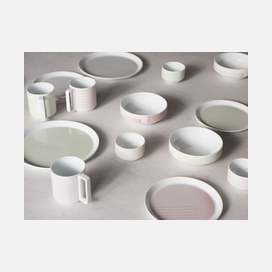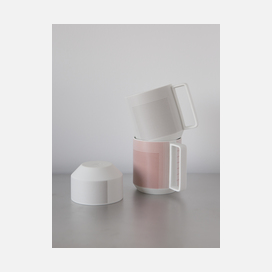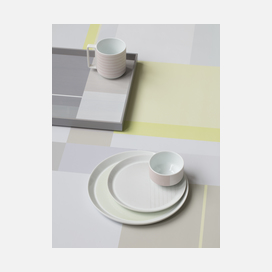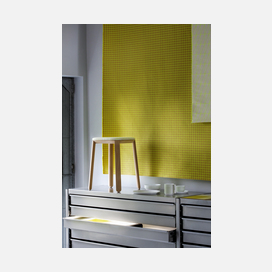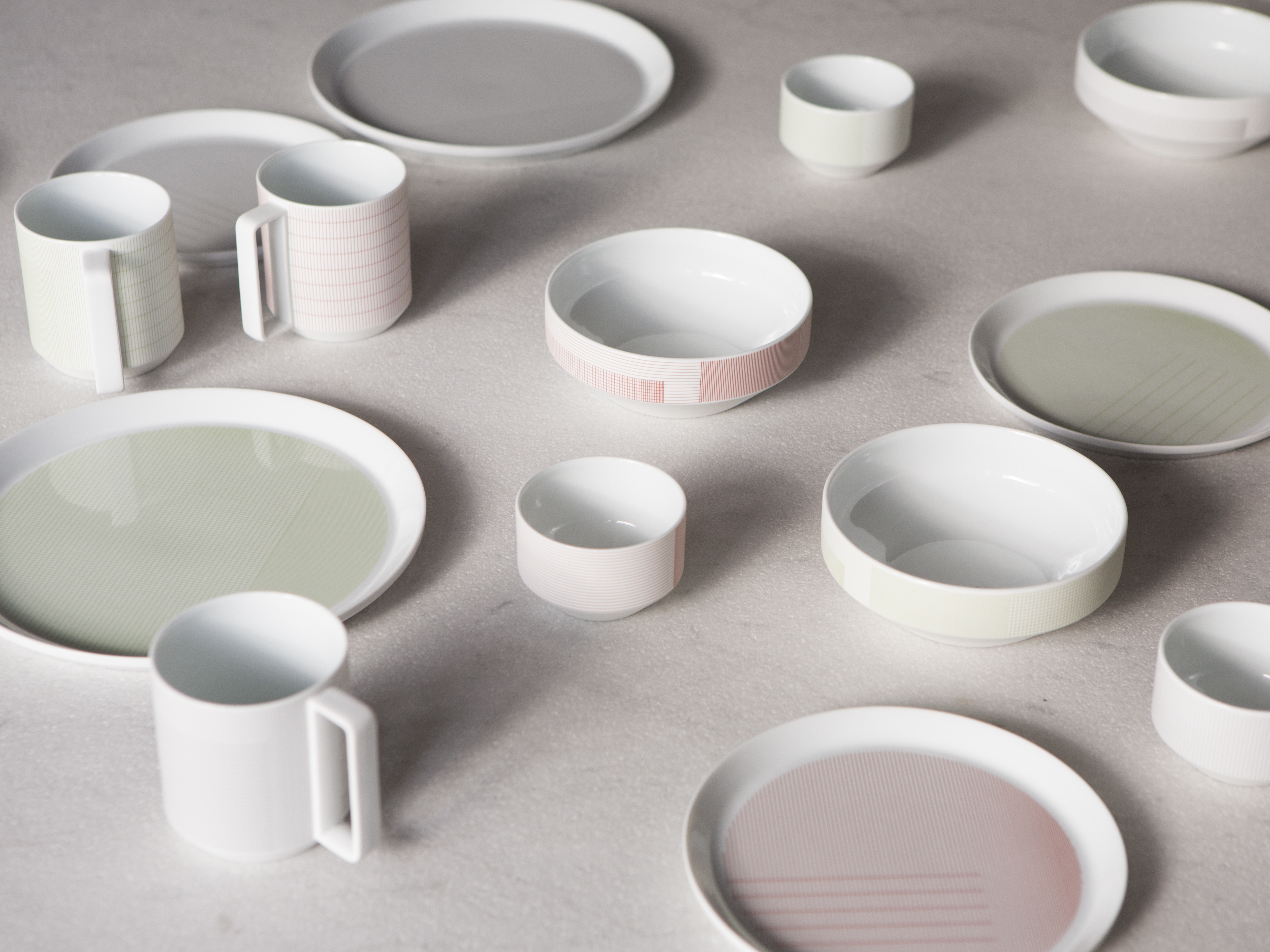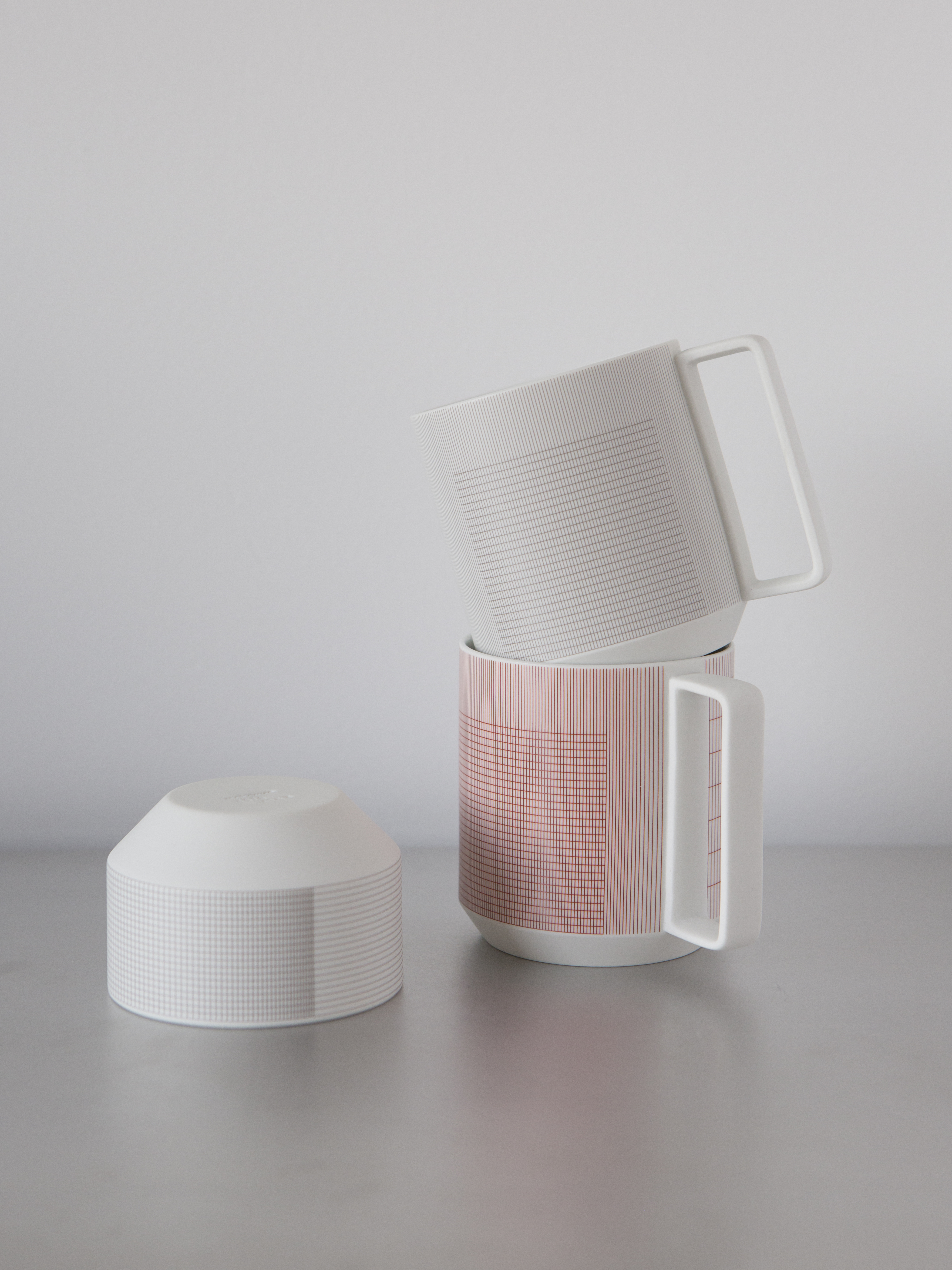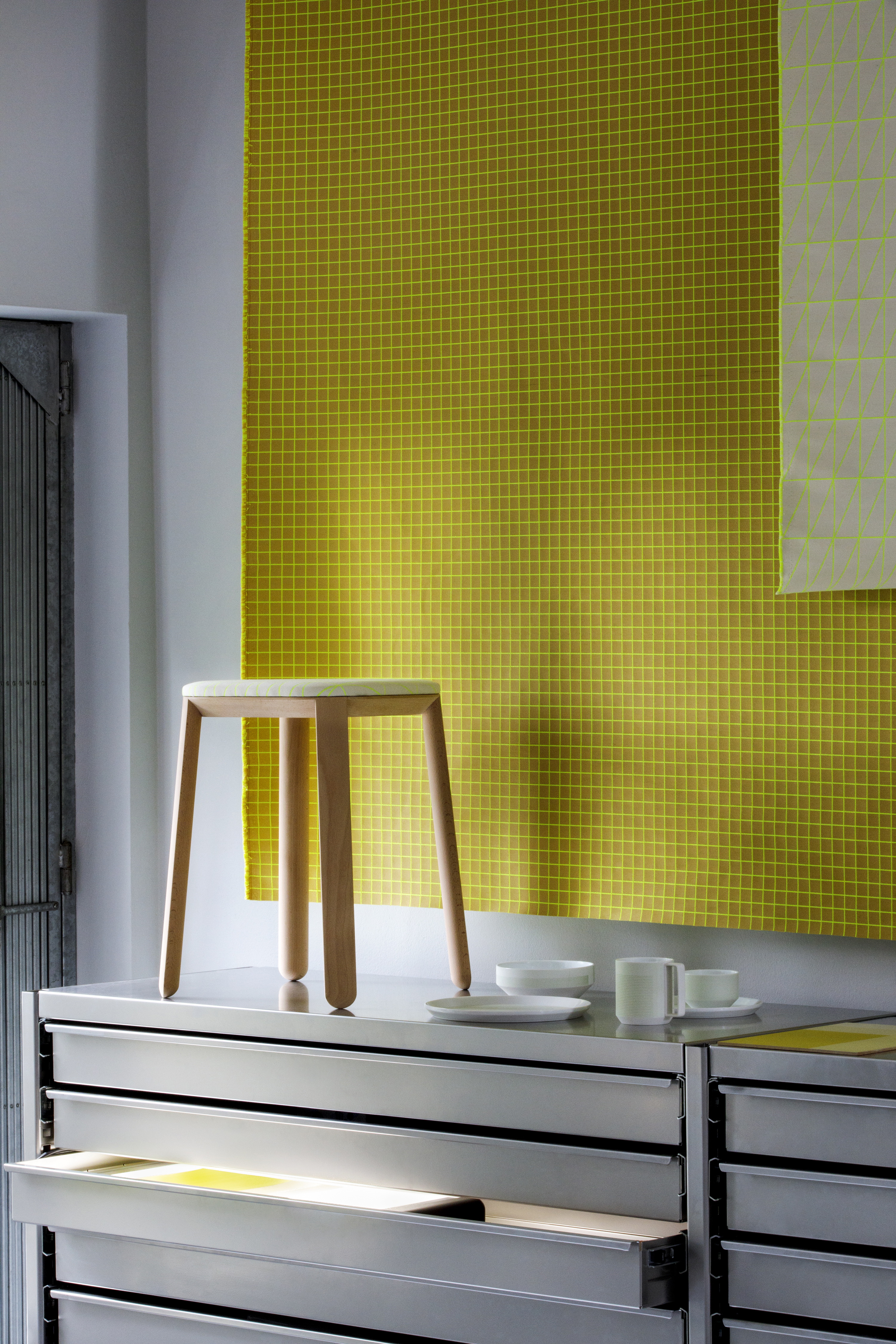This spring, Maharam introduces a new collection of accessories developed under the creative direction of Stefan Scholten and Carole Baijings. Initially developed exclusively for Japan, elements from the collection will soon arrive stateside, joining a robust selection of existing Maharam accessories—including bags by Konstantin Grcic, Hella Jongerius, and Jasper Morrison; pillows; and printed material—currently available through maharam.com and select retailers.
In developing accessories for Japan, Scholten & Baijings combine a deep knowledge of the country with an ability to carefully translate Maharam’s aesthetic vision. Encompassing a range of product types, materials, and techniques, the Scholten & Baijings for Maharam collection is unified by the Dutch duo’s nuanced sense of color, geometric pattern, and minimal form.
First among the collection is Pattern Porcelain, a five-piece set of porcelain tableware comprising a small and large plate, bowl, cup, and mug. Produced by 1616 / arita japan, Pattern Porcelain is embellished with a graphic reinterpretation of Grid, a groundbreaking textile created in 2014 by Scholten & Baijings in collaboration with the Maharam Design Studio. Over the course of the textile’s 27.5' repeat, Grid investigates color densities built up by parallel and perpendicular lines. In Stefan Scholten’s words, “The density of the grid determines how one experiences color and gives the color a more airy appearance than a monochromatic color plane.” Now at a dramatically reduced scale and with inverted color proportions, Grid enlivens the formal geometric simplicity of the porcelain pieces in three different hues applied with varying matte or gloss effects.
Similarly, three Karimoku New Standard rectangular oak trays are adorned with the pattern of Blocks, the companion textile to Grid. An exploration of color perception, Blocks features subtle colors lightly juxtaposed or overlapped to create effects of depth and transparency. Importantly, Scholten & Baijings meticulously designed the original pattern to work in sections as well as in its entirety. As Stefan Scholten explains, “a nine-meter piece of fabric that shows the whole repeat has to be just as interesting as a single meter of fabric.” Their success in overcoming this design problem is duly evident. While retaining the original textile colorations, this printed application of the pattern uses composition and cropping to distinguish each of three available sizes.
Karimoku New Standard is also the manufacturing partner for the Covered Stool. With a slender profile and stackable frame, the stool is topped with an upholstered seat fashioned from the fluorescent geometry of Bright Cube, the solid wool of Pare, or the stitched grid of Tracery—three other textiles designed by Scholten & Baijings in collaboration with Maharam—as well as the iconic Small Dot Pattern designed in 1947 by Charles and Ray Eames, all with complementarily colored, tinted beechwood bases—a previously unexplored effect. Hella Jongerius’s textile, Borders, which combines several different archetypal embroidered motifs, is an exception in that it’s paired with a natural beechwood base.
Premiered in Tokyo in fall 2017, elements of the Scholten & Baijings for Maharam collection will be available in North America come spring 2018. Additional products will follow.
About 1616 / arita japan
1616 / arita japan produces contemporary porcelain that can be used everyday, while offering the extraordinary workmanship, thinness, and strength of original Arita ware. Located in southern Japan, Arita has been the epicenter of porcelain production since its introduction to Japan in 1616 and is synonymous with Aritayaki, a type of pottery made using clay from crushed stone. Items are produced at the same factories, but with a wholly contemporary design aesthetic under the creative direction of Teruhiro Yanagihara. While focused on the Standard series, he invited Scholten & Baijings to develop their own line named Colour Porcelain. Both contributions shed new light on the Japanese porcelain tradition by fusing expert craftsmanship with contemporary design.
About Karimoku New Standard
Karimoku New Standard is a division of Karimoku, a furniture manufacturer based in central Japan with more than seventy years of history. Combining a deep understanding of carpentry craftsmanship with cutting-edge technologies, Karimoku builds furniture of the highest possible quality. Introduced in 2009, Karimoku New Standard offers innovative, joyful, and functional objects developed in collaboration with the world’s most promising design talents under the creative direction of David Glaettli.
About Scholten & Baijings
Stefan Scholten and Carole Baijings founded the Amsterdam-based Scholten & Baijings, Studio for Design in 2000. Moving fluidly between artisanal and industrial processes, Scholten & Baijings create products characterized by minimal forms enhanced by simple geometric patterning, a subtle use of materials, and an acute sense of color.
Their many clients include 1616 / arita japan, BMW Group/MINI, Established & Sons, Thomas Eyck, HAY, IKEA, Georg Jensen, Sèvres France, Karimoku New Standard, Samsung, and Moroso. Their work, both commissioned and independent, is collected and exhibited worldwide. In addition to four Dutch Design Awards, they were awarded the ELLE Decoration International Design Award (EDIDA) for Young Designer Talent in 2011 and 2014 and have twice been nominated for the Wallpaper* Designer of the Year Award (2011/2015). Reproducing Scholten & Baijings, the first monograph on the studio’s work, was directed by Maharam and published by Phaidon in February 2015. Designed by Joost Grootens, the book received an ADC Annual Award the following year.
